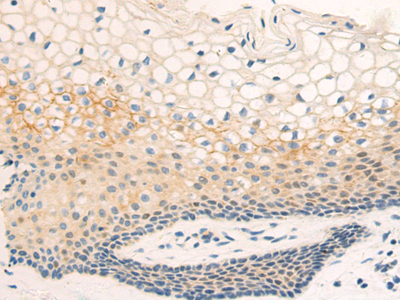No products in the cart.

$349.00
| Cat.#: S222350 | ||
| Product Name: Anti-TNFSF9 Rabbit Polyclonal Antibody | ||
| Synonyms: CD137L; TNLG5A; 4-1BB-L | ||
| UNIPROT ID: P41273 (Gene Accession – NP_003802 ) | ||
| Background: The protein encoded by this gene is a cytokine that belongs to the tumor necrosis factor (TNF) ligand family. This transmembrane cytokine is a bidirectional signal transducer that acts as a ligand for TNFRSF9/4-1BB, which is a costimulatory receptor molecule in T lymphocytes. This cytokine and its receptor are involved in the antigen presentation process and in the generation of cytotoxic T cells. The receptor TNFRSF9/4-1BB is absent from resting T lymphocytes but rapidly expressed upon antigenic stimulation. The ligand encoded by this gene, TNFSF9/4-1BBL, has been shown to reactivate anergic T lymphocytes in addition to promoting T lymphocyte proliferation. This cytokine has also been shown to be required for the optimal CD8 responses in CD8 T cells. This cytokine is expressed in carcinoma cell lines, and is thought to be involved in T cell-tumor cell interaction. | ||
| Immunogen: Synthetic peptide of human TNFSF9 | ||
| Applications: ELISA, IHC | ||
| Recommended Dilutions: IHC: 25-50; ELISA: 5000-10000 | ||
| Host Species: Rabbit | ||
| Clonality: Rabbit Polyclonal | ||
| Isotype: Immunogen-specific rabbit IgG | ||
| Purification: Antigen affinity purification | ||
| Species Reactivity: Human | ||
| Constituents: PBS (without Mg2+ and Ca2+), pH 7.4, 150 mM NaCl, 0.05% Sodium Azide and 40% glycerol | ||
| Research Areas: Immunology, Cancer | ||
| Storage & Shipping: Store at -20°C. Avoid repeated freezing and thawing | ||
|